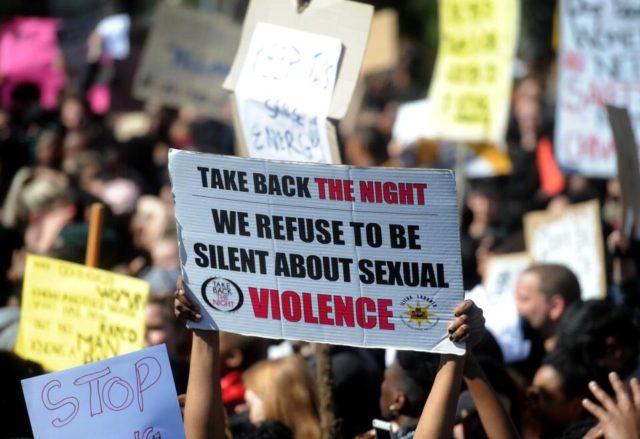Crimes against women and children are a growing pandemic, say activists following the recent release of the SAPS crime statistics.
CRIMES against women and children are a growing pandemic, say activists following the recent release of the SAPS crime statistics.
More than 9,500 women were raped between July and September 2021, while 13,000 cases of assault on women were reported in the same period.
The statistics were released days before South Africa commemorates the 30th anniversary of the 16 Days of Activism for No Violence against Women and Children campaign, which runs from November 25 to December 10.
Kerryn Rehse, the advocacy, policy and research officer at MOSAIC, said, “The rate of domestic violence, sexual violence and other forms of GBV remain consistently high. Research findings estimate that 1 in 2 women will experience domestic violence from their current or previous intimate partner in their lifetime.“
Rehse said the impact of GBV, especially domestic violence, was far-reaching.
She said it led to adverse effect on the direct victim, the children exposed to the violence, and communities. Rehse said GBV happened in homes and schools, among other places, and that a coordinated response was required to help combat it.
MOSAIC is a community based non-governmental organisation. It offers holistic and integrated programmes aimed at preventing abuse and violence against women.
Jennifer Chetty, the founder and director of Sinika Uthando, a counselling centre, said 2 to 3 women affected by domestic violence reached out to her organisation for help weekly, yet some women chose not to leave abusive relationships due to stigma.
“Some women stay to save their reputations. Failure is not what a woman wants to be remembered for.”
Lubna Nadvi, a board member at the Advice Desk for the Abused, said one should not ask why women remain in abusive relationships.
“The question should be, ‘why are there not more options available to women or men if they are victims of domestic violence and GBV and want to leave a relationship?’.”
She said women and girls should be taught that they must never accept any form of abuse or violence.
“A national conversation must take place across society and at all levels. It cannot simply happen between government officials and some NGOs that deal with GBV.
“It must happen between parents and children and other family members, teachers and learners, between friends, colleagues and those who do not know each other. All of society has to take the issue seriously enough and act if there is to be any real change.”
Adeshni Naicker, a director at Childline KZN, said South Africa had one of the highest statistics relating to abuse against children.
The abuse, she said, included neglect, sexual abuse, exploitation, emotional abuse and starvation. Naicker said they received almost 3,000 calls a week and 99% of these were related to some sort of abuse and GBV.
Javu Baloyi, the spokesperson for Commission for Gender Equality (CGE), said there has to be a strong political will to fight GBV. He said the CGE received almost 20 GBV-related cases a week, of which about 10 were relevant to the mandate of the commission. Those that were not relevant were referred to the relevant institutions.
“Resources must be ploughed into this fight and we must move from rhetoric to actions,” said Baloyi.
“Civil society and government must work together and the private sector must also play a critical role. We need a permanent GBV council structure from the government, which is well-resourced both in terms of human resources and finance.”
Mhlabunzima Memela, the spokesperson for the Department of Social Development, said: “GBV has been declared as the second pandemic after Covid-19 and, as such, awareness must be raised 365 days…
Analisa Naidoo, a social worker at a shelter for abused women, said shelters offered women safety in a crisis. She said they also offered a warm and nurturing environment for the abused person’s healing process.
Naidoo said they took in about seven women a month, some of whom were mothers.
“Women often reach out when the abuse is severe, such as when they sustain injuries, or when the children are involved or exposed to the abuse directly. We need skills development for some of the women to earn an income.
“We need the swift finalisation of protection orders and the police to be more proactive when approached for help. All sectors must work together to see a change.”
FOR HELP
– National Gender-Based Violence centre: 0800 428 428; SMS ‘help’ to 31531; or send a ‘please call me’ to *120*7867#
– Childline: 08000 55 555
– National Shelter Movement of South Africa helpline: 0800 001 005; or send a ‘please call me’ or WhatsApp message to 082 057 8600








